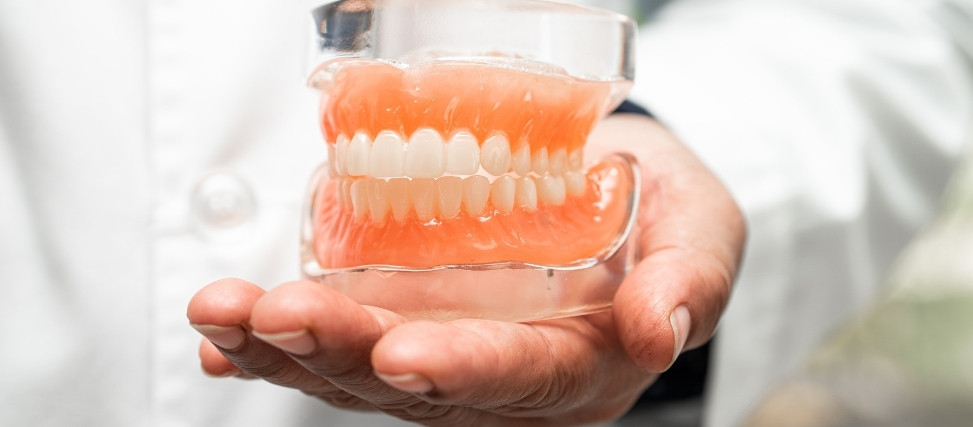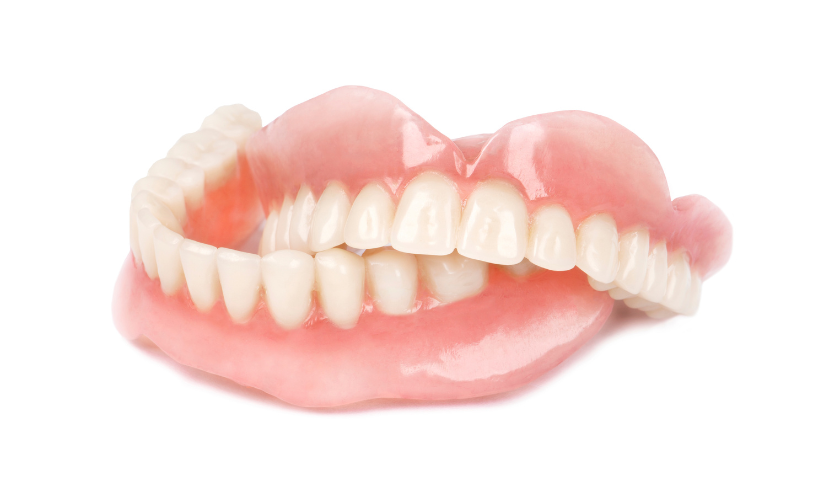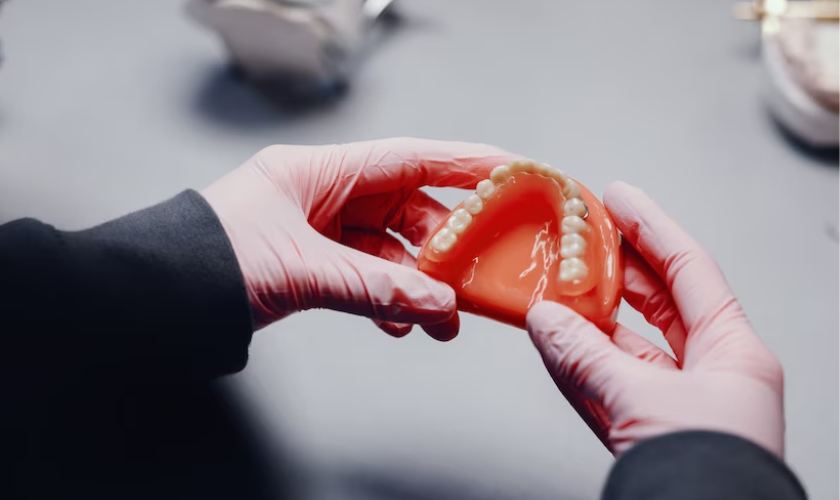Adjusting to dentures can be challenging, especially if you’ve never worn them before. Feeling uncomfortable or self-conscious as you get used to these new dental appliances is normal. However, comfort and confidence are key to making the transition smoother.
This blog will provide you with practical tips to help you adjust to wearing these false teeth comfortably. Dentures will feel more natural and less like a foreign object with time and patience. Embrace the journey, and soon you’ll find yourself smiling with ease.
Understanding the Adjustment Period
The first few days or even weeks of wearing dentures can be challenging. It’s completely normal to experience discomfort or awkwardness during this period. Your mouth needs time to adapt to the dentures, and your gums may feel sore as they adjust. You may also experience increased salivation, difficulty speaking, or challenges eating certain foods. The adjustment period varies for each person but typically lasts between 2 to 4 weeks.
Psychologically, the transition can affect your confidence. Speaking of eating may feel strange, and you might worry about how others perceive you. It is important to give yourself grace and recognize that these feelings are temporary. Your body will get used to the dentures, and your confidence will naturally grow with practice. Many people who wear dentures find that their confidence improves once they feel comfortable and secure with their new smile.
Tips to Adjust to Wearing Dentures
Tip #1: Get the Right Fit
The fit of your dentures plays a crucial role in comfort. Ill-fitting ones can cause irritation, soreness, and difficulty chewing or speaking. If your dentures feel too tight or too loose or cause pain, visit your dentist for an adjustment.
A good fit will reduce discomfort and prevent sores from developing on your gums. Your dentist can make minor tweaks to ensure a proper fit, which will enhance your overall comfort and confidence.
Tip #2: Start Slow with Foods
In the early days, start with soft foods that are easy to chew, like mashed potatoes or yogurt. Gradually introduce more solid foods as your mouth becomes accustomed to the dentures. Cut food into small, manageable pieces, and chew slowly on both sides of your mouth.
Avoid sticky, hard, or chewy foods until you feel more confident. This gradual approach will help you gain control over how your dentures feel while eating.
Tip #3: Practice Speaking
Speaking may feel odd at first, and you might have difficulty pronouncing certain words. To improve your speech, practice reading aloud in front of a mirror or talking with a family member.
It may sound different initially, but your speech will become more natural with consistent practice. Be patient with yourself and avoid getting discouraged—confidence in speaking grows as your mouth adapts to the dentures.
Tip #4: Maintain Oral Hygiene
Maintaining a proper oral hygiene routine is essential to keeping both your dentures and mouth healthy. Clean your dentures after each meal with a soft brush and mild soap or denture cleaner. Soaking these false teeth overnight helps keep them in good condition.
Remember to clean your gums and natural teeth daily to prevent infections or gum disease. Proper hygiene ensures that your dentures remain fresh and comfortable while promoting the health of your gums.
Tip #5: Use Adhesives for Extra Security
Denture adhesives can provide extra stability, especially in the beginning. They help keep the dentures in place, reducing discomfort from slipping or shifting. Choose a reliable adhesive that works well for your denture type.
Be sure to follow the instructions carefully to avoid using too much. If you find yourself constantly relying on adhesives, consult your dentist for an adjustment. Over time, you may no longer need them once you’ve gotten used to wearing your dentures.
Tip #6: Take Breaks When Needed
Wearing dentures for the first time can feel overwhelming. It’s okay to remove them for short breaks to give your gums a rest. Start by wearing dentures for a few hours daily and gradually increase the time as you get more comfortable.
Taking breaks allows your gums to heal and prevents soreness. Eventually, your dentures will feel more natural, and you can wear them for longer periods without discomfort.
Tip #7: Manage Discomfort and Seek Professional Help
Discomforts like sore spots, gum irritation, or slipping dentures can be common during the adjustment period. If you experience persistent pain, consider using soothing gels or rinses recommended by your dentist.
If the discomfort doesn’t improve, return to your dentist for further adjustments. Your dentist can make minor tweaks to relieve discomfort and help you get the best fit. Never ignore significant discomfort, as it may indicate a problem that needs professional attention.
Tip #8: Build Confidence Over Time
The more you wear your dentures, the more confident you will become. Initially, you may feel self-conscious, but you’ll adapt to your new smile over time. Focus on the positives, like improved speech and a fuller, more youthful appearance. Surround yourself with supportive friends and family who encourage you through the transition.
If needed, connect with online communities or support groups where others share similar experiences. Remember, confidence grows as you get more comfortable with your dentures.
Why Are Dentures a Common Solution?
People widely use these false teeth for people who have lost their natural teeth. They help restore the ability to eat, speak, and smile confidently. Many individuals opt for dentures due to aging, oral disease, or accidents that result in tooth loss. Dentures are often more affordable than implants or other dental solutions, making them a popular choice.
Additionally, they can be customized to fit your mouth comfortably and restore the appearance of your smile. With proper care, dentures can improve oral health and enhance the quality of life by making daily tasks like eating and talking much easier.
Adjusting to dentures takes time, but you can find comfort and regain your confidence with the right approach. Remember to focus on getting the proper fit, practicing with foods, and maintaining good hygiene. Take your time and be patient with yourself during the adjustment period.
With each passing day, wearing dentures will become second nature. Soon, you’ll be smiling confidently, knowing that your dentures are helping you live life to the fullest. Stay positive, and know that this adjustment is just a part of your journey to better oral health.




